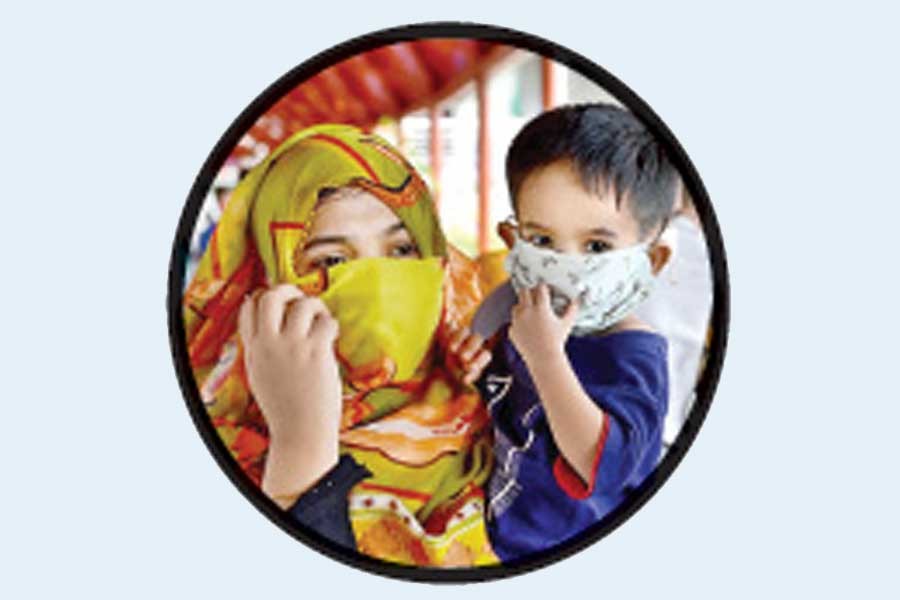Covid-19 has taken a heavy toll on the global economy. According to government officials, especially those who are responsible for safeguarding the economy of the country, Bangladesh economy is not in that bad shape as one would have thought in the global context. Yes, the economy has shrunk but not as bad as that of India, our major neighbour. The economy of India has shrunk perilously. The Bangladesh economy is in a better position compared to many other countries around the world.
But there is no scope to be complacent. We need to be alert against all possible consequences. Like many other countries, developed or underdeveloped, the continued pandemic shut down has badly shattered the economy of India. Its economy is literarily in doldrums bending the whole nation to its knee. Millions of people are losing their jobs. Twenty-one million people in the country have lost their jobs within a few weeks. Renowned economists of the country apprehend the figure may rise to 120 million.
Prices of essentials are already high in India because of poor harvest. Bangladesh, being the closest neighbour of India, has been dependent on India to a large extent for import of many of its daily necessities. Any adverse situation in that country is bound to affect Bangladesh. Onion is the latest example. Its price shot up to Tk 100 per kilogram from Tk 45 in a couple of days due to India's sudden ban on export.
A wave of deep economic depression is about to push the world economy to the bottom. Unless the corona pandemic halts its maddening galloping sooner than later, there is no way of recovery of the world economy to an acceptable level shortly. Bangladesh, as a developing country with its fragile economy, cannot escape the onslaught of such a catastrophe. However fanatically we may try, we may not find a place far from the madding crowd. So it is better to remain prepared for the worst.
Coronavirus Infection, as well as death rate, is still dangerously high in the USA, Brazil and India. It is rising again as a second wave in the UK, France and Spain and Italy. The other European countries are unlikely to be spared. In terms of Infection, India is now only second to the USA. Its infection case has already crossed 5.0 million, death nearing 100,000.
The government measures coupled with an awareness of people, Bangladesh has miraculously managed to contain the virus to an acceptable limit.We must not, however, forget that the figure of coronavirus death or infection we get from the Health Directorate may not be the real picture. This figure is out of corona tests of only 10-15 thousand per day. It could be much higher in the case of an increased number of tests. 40 to 50 thousand tests a day is not uncommon for many other countries.
The future course of the virus remains a mystery. The second wave of a surge in the European countries is a matter of grave concern for any country.
Prime Minister SheikhHasina has not ruled out a possible surge of the virus in our country in the coming winter. So we have no scope to relax. We have to follow the WHO's health guidelines for a prolonged time.
Worries for Bangladesh are many. Health and economy are at the moment, certainly the two top priorities. We have to fight against an invisible enemy, coronavirus and save human lives and at the same time, we have to keep the economy of the country moving, again to save human lives. If there are no economic activities, there are no jobs. If there are no jobs, millions of people will lose their livelihood and die of hunger. So the country is in a dilemma. It has to find a way to strike a balance between the two.
The core question is how to do that? Do we go for a complete shutdown? Do we keep the shops, restaurants, transport services and factories closed for an indefinite period? We cannot. We have to keep the garment factories running. The small and medium-sized industries have to continue their operations. We have to open shops and restaurants to help people engage in jobs and earn their livelihood. We have to ensure the economy moving, at least on a limited scale, if not in full swing.
The only alternative for us is to do all that is required to earn a livelihood. At the same time, we need to take care of our health following the WHO guidelines as far as practicable. The solution to the dilemma ultimately lies mainly with the people. The government can only act as a helping hand.
Capt. Hussain Imam is a retired Merchant Navy Officer


